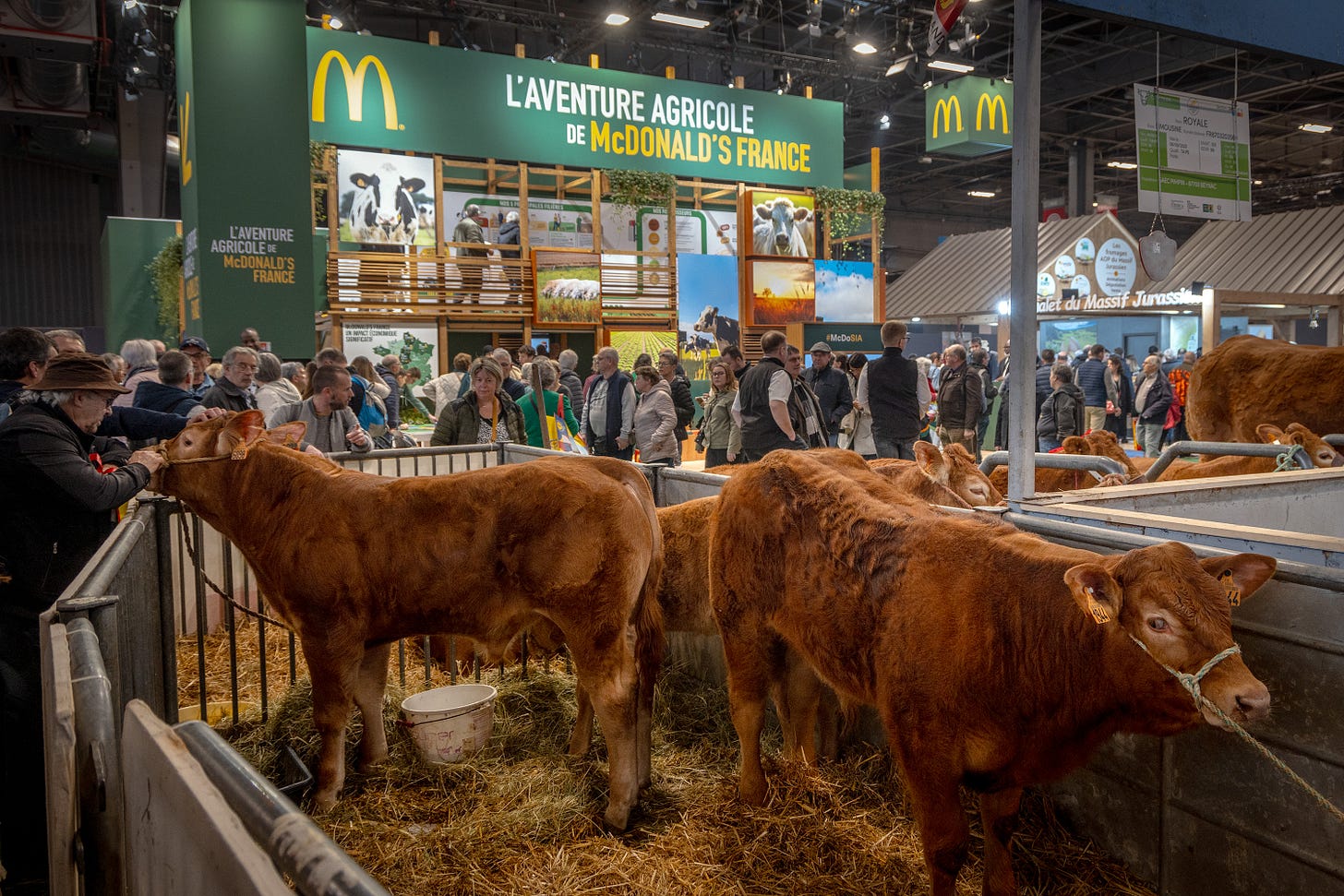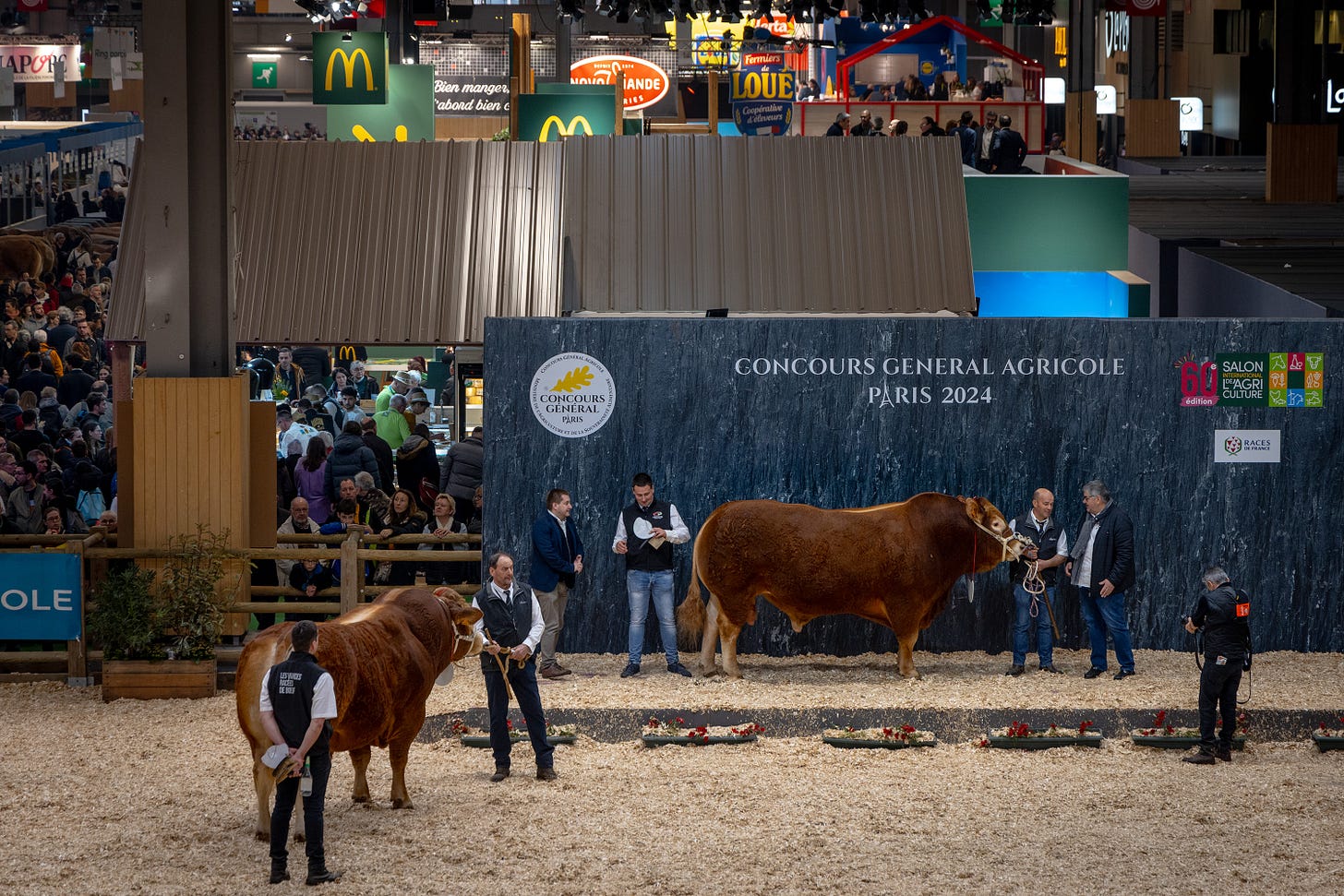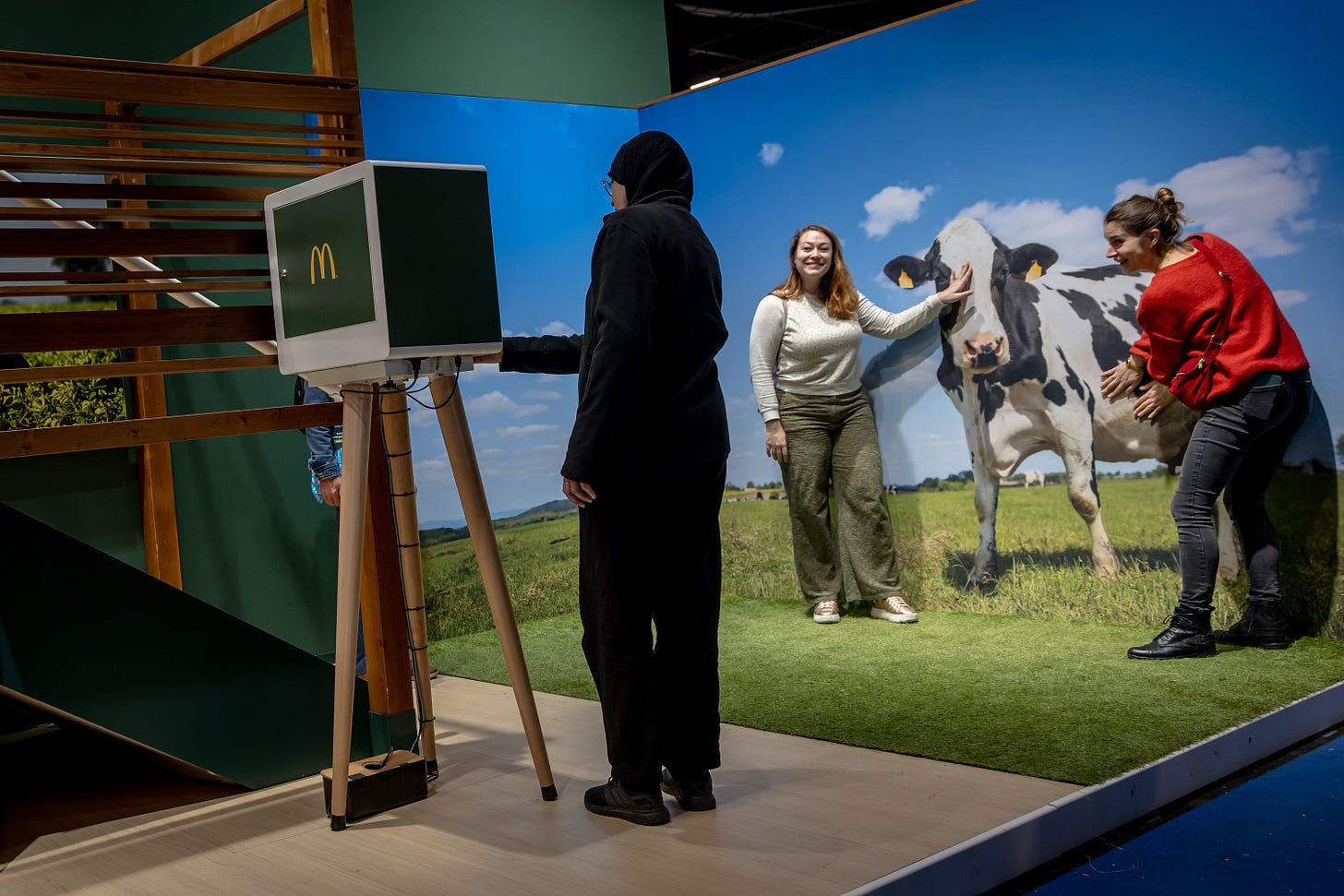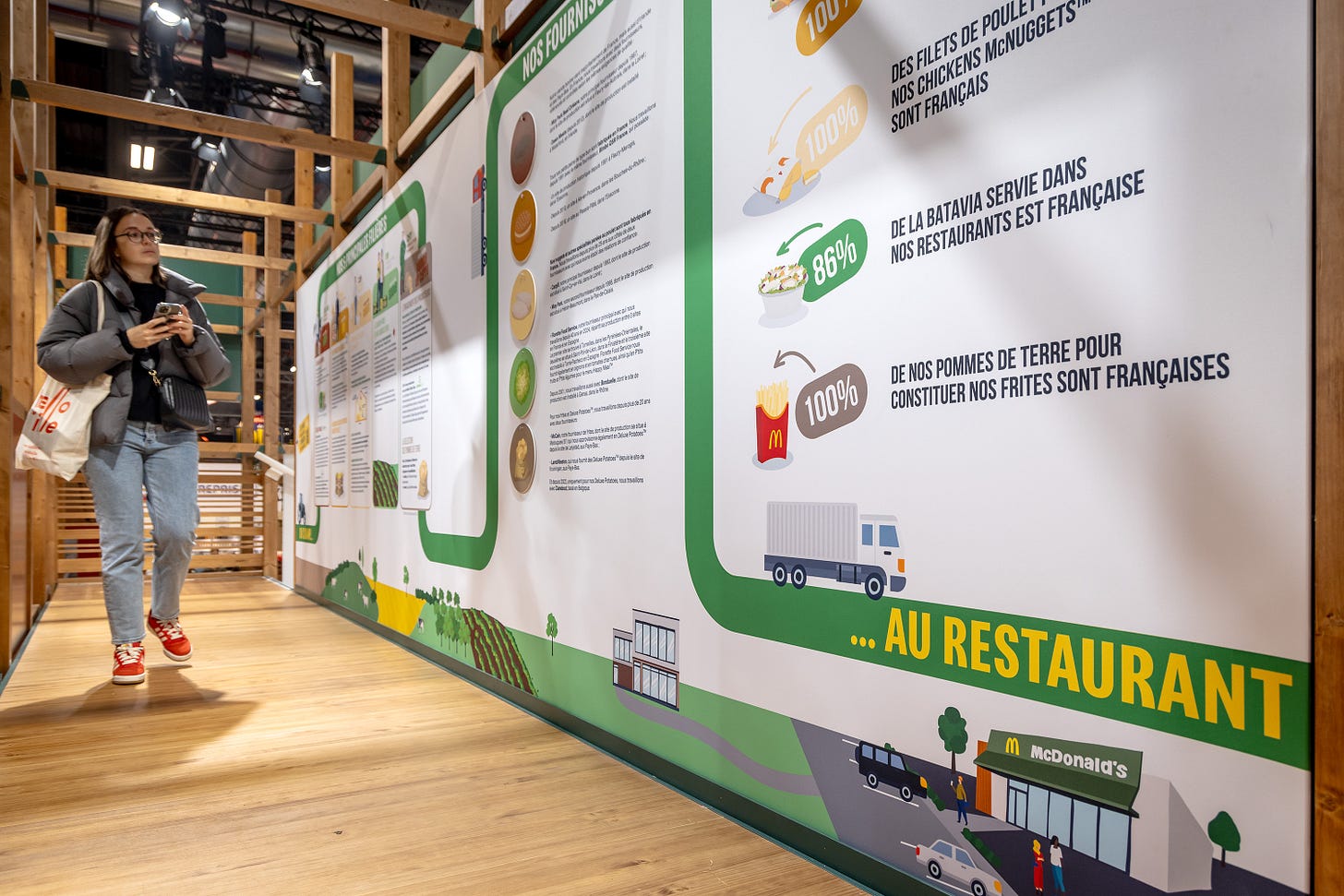What's McDonald’s doing at the most important food event in France?
The Salon International de l'Agriculture is the intersection of farming, politics... and the Golden Arches

PARIS, France — The Salon International de l'Agriculture might be the best food event in the world. There are over a thousand vendors, most of them offering some sort of regional French food product, with free samples galore. Berets that you will never wear again are available for sale in a dozen colors. There’s a fifteen foot tall Eiffel Tower made of produce that’s perfect for the ‘gram.
But the biggest draw at the Salon are the farm animals, especially the cows. Dozens of Limousine, the top French cattle breed of the past decade, are on display and occasionally marched in front of a grandstand where thousands of spectators spill out over to the ringside. Surrounding this area are large booths from the most important French food producers, all offering up freebies: the market leader Danone, dairy specialist Lactalis, and representatives from the Jura cheese appellations Comté, Emmental Grand Cru, Morbier, and Gruyere.
Oh, and there’s one more booth next to them: McDonald’s.
Now in its 60th year, the Salon brings the farm to the capital, with over 4000 animals, 600,000 visitors, and 40,000 professionals in attendance. Over the course of the nine days, the animals produce over 600 tons of manure. Did I mention that politicians show up? From aspiring candidates all the way up to French presidents: Charles de Gaulle and Jacques Chirac made regular visits here, and current President Emmanuel Macron holds the endurance record for having spent fourteen and a half hours working his way through the expo.
French farmers are one of the most powerful and agitated voting blocs in the country, and the Salon is where you come to kiss the ring. Let’s not forget, protest is a national pastime around these parts: just weeks earlier, the country’s largest farming union demanded better pay and working conditions by blocking the roads into Paris using tractors.
In the middle of this is McDonald’s, undoubtedly one of the largest customers of French farming output, but also a symbol of globalization and American cultural imperialism that strikes at the very heart of what the farmers stand for.
How We Got Here
On August 12, 1999, a group of sheep farmers led by the activist José Bové descended upon an under-construction McDonald’s restaurant on the outskirts of Millau, a commune in the south of France. Images of the group dismantling the building using an excavator were broadcast around the world, and overnight Bové became a national hero and the face of the fight against globalization.
“McDonald’s is the symbol of standardization of food,” Bové said in his trial, which was a media circus that drew tens of thousands of supporters, onlookers, and media. “What we did was like the Boston Tea Party.”
Bové was sentenced to three months in prison, but the exposure and his media savvy during the Millau action rocketed Bové to new levels of celebrity and allowed him to take his message on the road, appearing in protests around the globe from Seattle to Bangalore.
McDonald’s turned what was a growing public relations disaster into an opportunity. Just a year after the Millau verdict was handed down, the company set up a booth at the Salon International de l’Agriculture. The point was to showcase that the restaurant had been serving French food all along: most of the meat, produce, and bread were sourced locally, from the same producers that supplied all of the other restaurants around the country. Even the hypocritical farmers that publicly supported Bové’s messaging had to now acknowledge that they relied on McDonald’s massive purchasing power for their profits.
“We came out of this crisis stronger,” said McDonald’s France president and managing director Denis Hennequin in an interview with a reporter in 2007. “French consumers heard our message and said, ‘It’s my McDonald’s.’ Bové helped us at the end of the day.”
At the Salon, Twenty Five Years Later
There are eight areas at the expo, organized by theme: the winemakers are in Pavilion 2, the new farming tech is in Pavilion 4, and most of the restaurants and regional producers are in Pavilion 3, which is so thronged with people drinking and eating throughout the day that you can barely move between the stalls.
McDonald’s has no interest in serving cheeseburgers here, however: their booth is located in Pavilion 1. Yup, the one that you have to walk through to get to everything else, and where the animal farmers are. There, across from the stalls of Limousine cattle that are bred for beef, is a giant billboard of corporate propaganda, detailing the significant economic impact of McDonald’s purchases and contracts with farmers from each of the country’s provinces. Children and adults alike can play a quiz or board game to win bags of McDonald’s-branded apple slices (it’s a healthier restaurant in 2024!), or engage with a photo booth where they can pose in front of a cow in a field.
Localization has always been the (imperfect) answer to claims of cultural imperialism, even though farmers still occasionally torture McDonald’s local operators here by dumping truckloads of manure in front of the stores for not using enough French beef in their products. But nowadays there are also protests when the decision is made to not build a McDonald’s restaurant in a community, as was the case with the town of Saint-Pol-sur-Ternoise near the Belgian border in 2014. Local residents marched through the streets chanting “We want Big Macs!”—and presumably the jobs that come with selling them.
Since the Millau incident, McDonald’s France has doubled in size, and it is now the largest market in Europe and the fourth in the world after the United States, China, and Japan. As for Bové, he continued his antiglobalization tour and ran for president in 2007, hoping that his name recognition and messaging would move the needle. He finished in 10th place, with barely 1 percent of the vote.
In the battle for the hearts and minds (and wallets) of the French people, McDonald’s had won.






